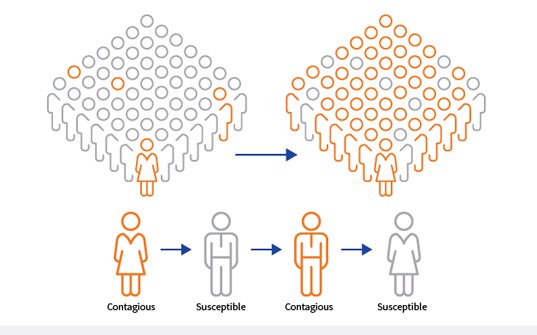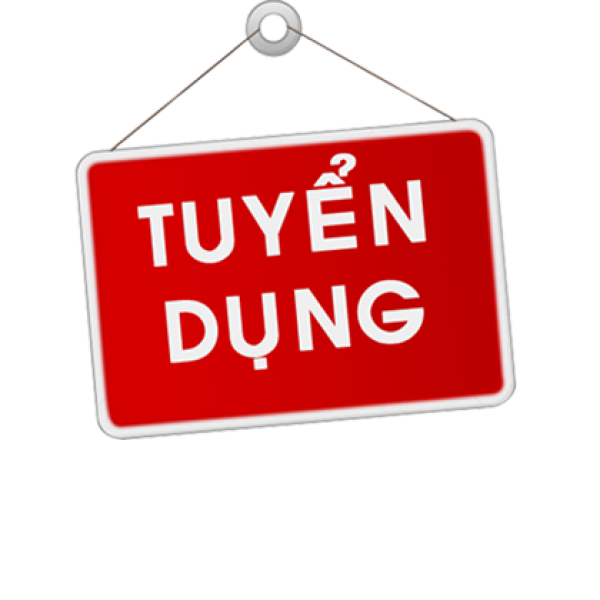Liên hệ tuyển sinh
Herd Immunity (Miễn dịch cộng đồng)
Some countries have tried herd immunity and not put in place lockdowns in response to outbreaks. Sweden is perhaps the most notable example of this. For the most part, most scientists believe the strategy has failed as Sweden’s economy suffered just as much as their neighbors while having a far higher rate of mortality per capita.
Be careful about what you read nowadays concerning the Coronavirus. Trolls in America keep spreading false news about the Coronavirus to justify the administration’s poor policies. Not only are these reports false, they contradict the policies of Vietnam which are far more well-informed and competent than the USA.

People should understand the only reliable sources of information come from peer-reviewed medical journals such as Lancet and PubMed. MedRxiv collects preprints which are papers submitted for peer-review but have not yet been peer-reviewed. I have references for such sources below.
There is some interesting scientific literature concerning herd immunity though. For one, some models of the spread of the Coronavirus believe herd immunity can be achieved with just 20% of people being infected. The idea is that most of Covid-19 is spread by a few people so by letting the people who are most likely to travel the most and contact the most amount of people be infected and develop anti-bodies, this will hamper the spread of the disease in future outbreaks. However, this is only one model and depends on many assumptions.
Another issue with herd immunity is that the prevalence of antibodies decreases dramatically within 3 months time. Most anti-bodies conferred by infection with other coronaviruses often last for just a year as well so this information is not unexpected. Antibodies are just one part of the immune system (T-cells have memory too), but if significant numbers of antibodies do not last for more than a few months for most people; herd immunity is not a smart public health strategy.
Again, even assuming all these assumptions are true and herd immunity can work as a public health strategy; the public cost is staggering. Over 5000 people have died in Sweden already and they have not achieved herd immunity.
Sincerely,
Le Minh Tri - Phan Chau Trinh University
References below:
***
Một số quốc gia đã thử miễn dịch cộng đồng và không thực hiện việc giãn cách xã hội để đối phó khi dịch bùng phát. Thụy Điển có lẽ là ví dụ đáng chú ý nhất về điều này. Phần lớn, hầu hết các nhà khoa học tin rằng chiến lược này đã thất bại vì nền kinh tế của Thụy Điển bị thiệt hại nhiều như các nước láng giềng trong khi có tỷ lệ tử vong trên đầu người cao hơn nhiều.
Hãy cẩn thận về những gì bạn đọc ngày nay liên quan đến Coronavirus. Những kẻ lừa đảo ở Mỹ tiếp tục tung tin giả về Coronavirus để biện minh cho các chính sách kém cỏi của chính quyền. Những báo cáo này không chỉ sai sự thật mà còn trái ngược với các chính sách của Việt Nam, những nước có đầy đủ thông tin và năng lực hơn Hoa Kỳ.
Mọi người nên hiểu các nguồn thông tin đáng tin cậy duy nhất đến từ các tạp chí y tế đã được bình duyệt như Lancet và PubMed. MedRxiv thu thập các bản in trước là các bài báo được gửi để xem xét ngang hàng nhưng chưa được đánh giá đồng cấp. Tôi có tài liệu tham khảo cho các nguồn như vậy bên dưới.
Tuy nhiên, có một số tài liệu khoa học thú vị liên quan đến khả năng miễn dịch bầy đàn. Thứ nhất, một số mô hình về sự lây lan của Coronavirus tin rằng có thể đạt được miễn dịch bầy đàn với chỉ 20% số người bị nhiễm. Ý tưởng là hầu hết Covid-19 lây lan bởi một số ít người, vì vậy bằng cách để những người có khả năng đi du lịch nhiều nhất và tiếp xúc với số lượng người bị nhiễm bệnh nhiều nhất và phát triển các cơ quan chống đối, điều này sẽ cản trở sự lây lan của bệnh trong các đợt bùng phát trong tương lai. Tuy nhiên, đây chỉ là một mô hình và phụ thuộc vào nhiều giả thiết.
Một vấn đề khác với khả năng miễn dịch của đàn là tỷ lệ kháng thể giảm đột ngột trong vòng 3 tháng. Hầu hết các kháng thể được phong tặng do nhiễm các coronavirus khác thường chỉ tồn tại trong một năm nên thông tin này không nằm ngoài dự đoán. Kháng thể chỉ là một phần của hệ thống miễn dịch (tế bào T cũng có trí nhớ), nhưng nếu một số lượng đáng kể các kháng thể không tồn tại hơn một vài tháng đối với hầu hết mọi người; miễn dịch bầy đàn không phải là một chiến lược y tế công cộng thông minh.
Một lần nữa, ngay cả khi giả định tất cả những giả định này là đúng và miễn dịch bầy đàn có thể hoạt động như một chiến lược sức khỏe cộng đồng; cái giá phải trả là đáng kinh ngạc. Hơn 5000 người đã chết ở Thụy Điển và họ không đạt được miễn dịch theo đàn.
Trân trọng,
Lê Minh Trí
Tham khảo bên dưới:
***
Sweden Has Become the World’s Cautionary Tale
“This is what has happened: Not only have thousands more people died than in neighboring countries that imposed lockdowns, but Sweden’s economy has fared little better.
“They literally gained nothing,” said Jacob F. Kirkegaard, a senior fellow at the Peterson Institute for International Economics in Washington. “It’s a self-inflicted wound, and they have no economic gains.” ...
The elevated death toll resulting from Sweden’s approach has been clear for many weeks. What is only now emerging is how Sweden, despite letting its economy run unimpeded, has still suffered business-destroying, prosperity-diminishing damage, and at nearly the same magnitude of its neighbors.”
https://www.nytimes.com/2020/07/07/business/sweden-economy-coronavirus.html
***
Persistent heterogeneity not short-term overdispersion determines herd immunity to COVID-19
“It has become increasingly clear that the COVID-19 epidemic is characterized by overdispersion whereby the majority of the transmission is driven by a minority of infected individuals.
“Persistent heterogeneity has three important consequences compared to the effects of overdispersion: (1) It results in a major modification of the early epidemic dynamics; (2) It significantly suppresses the herd immunity threshold; (3) It significantly reduces the final size of the epidemic.
https://www.medrxiv.org/content/10.1101/2020.07.26.20162420v1
***
Herd immunity thresholds for SARS-CoV-2 estimated from unfolding epidemics
“Our inferences result in herd immunity thresholds around 10-20%, considerably lower than the minimum coverage needed to interrupt transmission by random vaccination, which for R_0 higher than 2.5 is estimated above 60%. We emphasize that the classical formula, 1-1⁄R_0 , remains applicable to describe herd immunity thresholds for random vaccination, but not for immunity induced by infection which is naturally selective. These findings have profound consequences for the governance of the current pandemic given that some populations may be close to achieving herd immunity despite being under more or less strict social distancing measures.”
https://www.medrxiv.org/content/10.1101/2020.07.23.20160762v1
***
Longitudinal evaluation and decline of antibody responses in SARS-CoV-2 infection
“Whilst some individuals with high peak ID50 (>10,000) maintained titres >1,000 at >60 days POS, some with lower peak ID50 had titres approaching baseline within the follow up period. A similar decline in nAb titres was also observed in a cohort of seropositive healthcare workers from Guy′s and St Thomas′ Hospitals. We suggest that this transient nAb response is a feature shared by both a SARS-CoV-2 infection that causes low disease severity and the circulating seasonal coronaviruses that are associated with common colds.”
https://www.medrxiv.org/content/10.1101/2020.07.09.20148429v1
Các tin khác
- Tại sao lại gọi BA.2 là Omicron tàng hình? ( 07:14 - 13/03/2022 )
- cập nhật tình hình đại dịch Covid-19 toàn cầu, thứ sáu 24-12-2021 .. ( 14:17 - 24/12/2021 )
- Những tác động tiềm tàng của các sự bùng phát biến thể Delta SARS-CoV-2 đối với các khu vực nông thôn và bệnh viện ( 04:50 - 14/08/2021 )
- MỐI LIÊN QUAN GIỮA THÊM VÀO KHÁNG IL-6 VÀ TỶ LỆ TỬ VONG Ở BỆNH NHÂN NẰM VIỆN DO COVID-19 ( 12:28 - 08/08/2021 )
- Các quan chức y tế Hoa Kỳ báo cáo các trường hợp viêm tim cao hơn dự kiến sau khi tiêm vắc xin Covid-19 ( 07:59 - 09/07/2021 )
- Đánh giá tình trạng phản ứng phụ hiếm gặp và nghiêm trọng sau khi sử dụng vắc xin Ad26.COV2.S ( 14:18 - 25/06/2021 )
- Những bác sĩ trẻ đối mặt 'cuộc thử thách bằng lửa' ( 08:23 - 14/06/2021 )
- LÂY TRUYỀN SARS-COV-2 TỪ NHỮNG NGƯỜI KHÔNG CÓ TRIỆU CHỨNG COVID-19 ( 16:01 - 10/06/2021 )
- Nghiên cứu mới nhất về các phương pháp điều trị và thuốc chống COVID-19 ( 14:57 - 05/06/2021 )
- Nghiên cứu cho thấy hai liều vaccine dự phòng Covid bảo vệ hiệu quả biến thể được tìm thấy ở Ấn Độ (theo CNBC) ( 16:05 - 01/06/2021 )

















